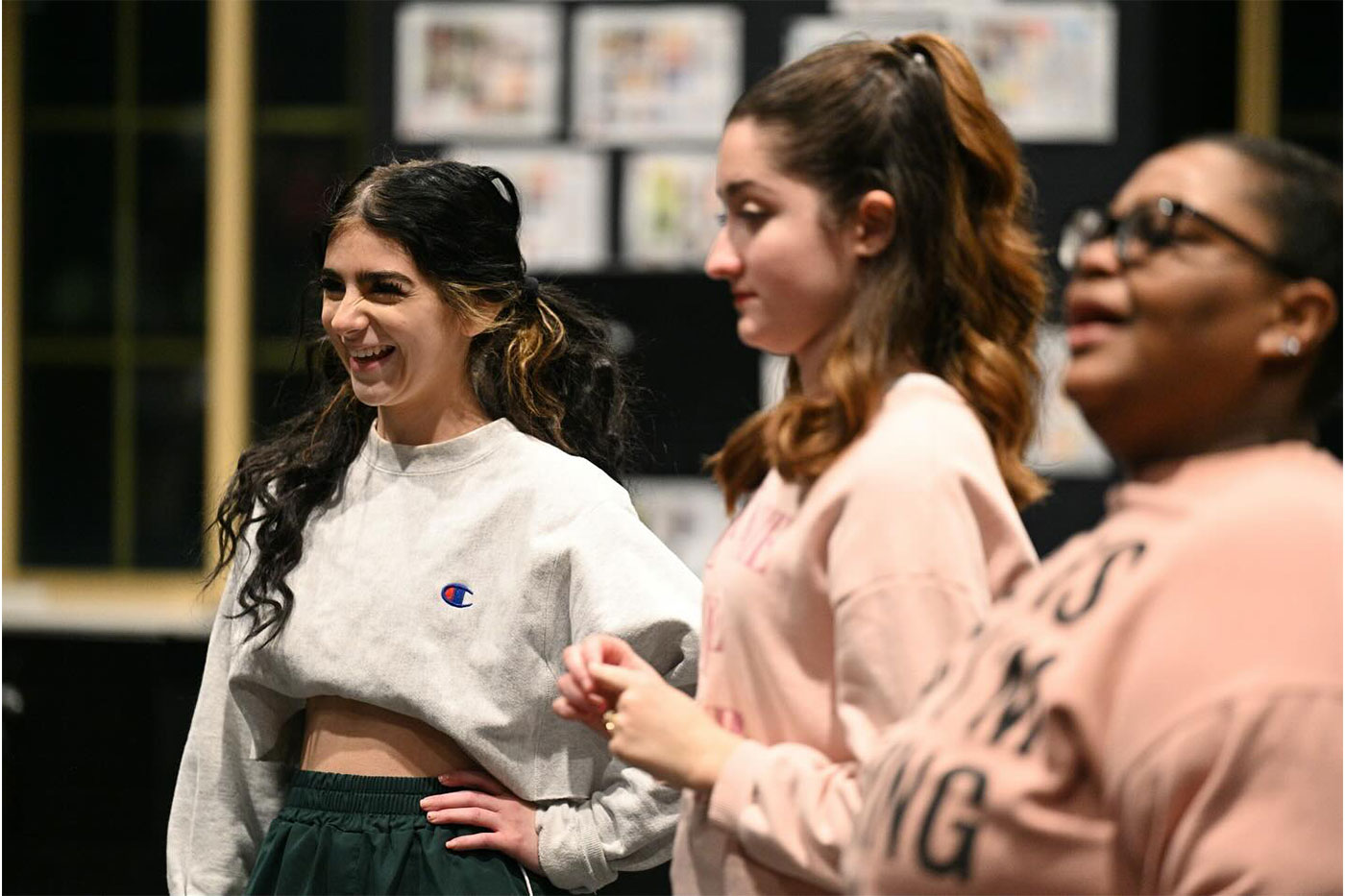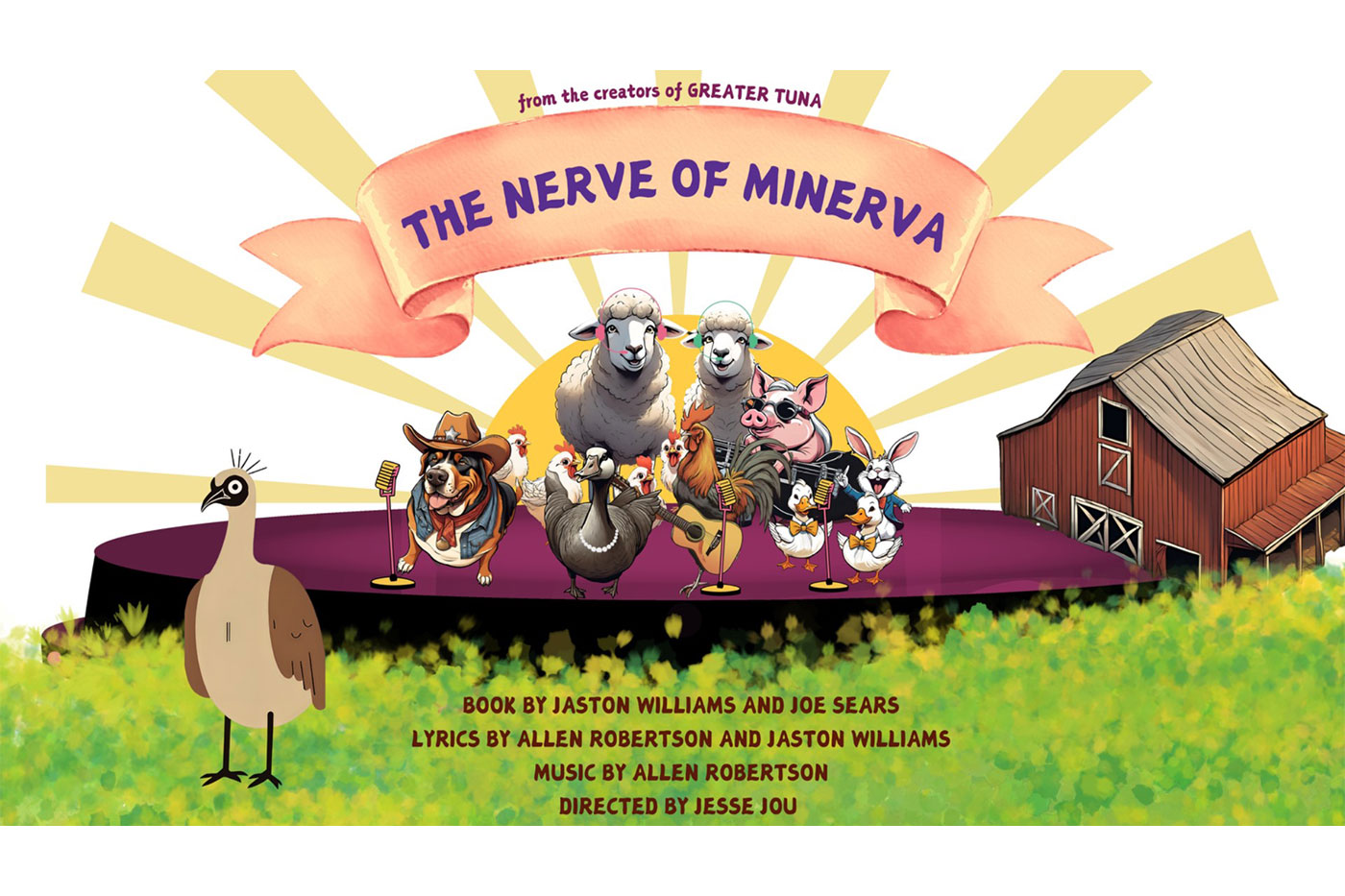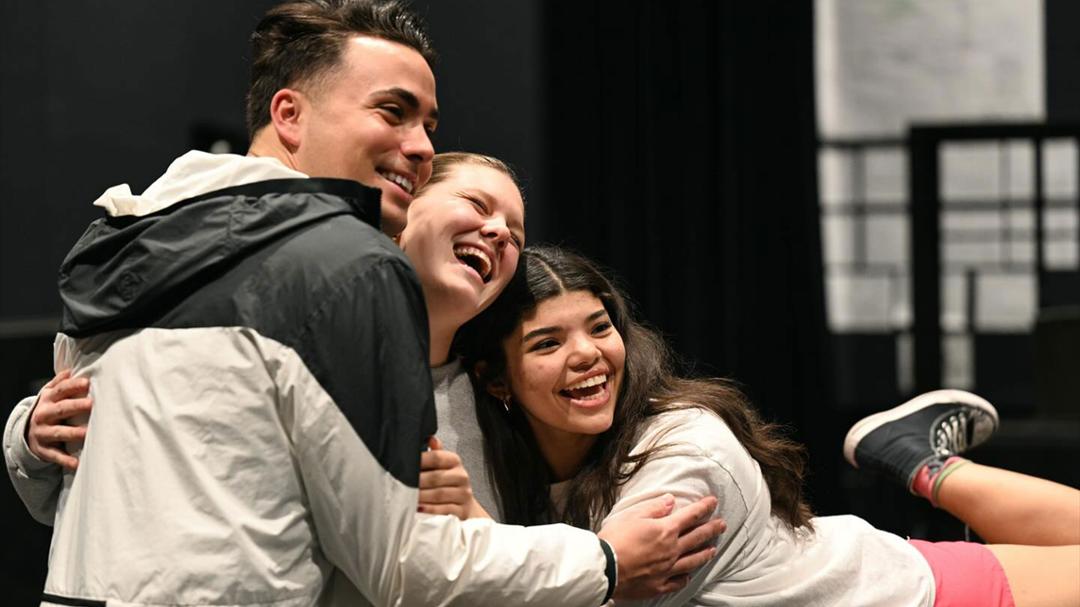“The Nerve of Minerva” written by alumnus Jaston Williams will be a collaboration between many departments on campus and is open to the Lubbock community.
There are unforgettable moments in theatrical performances.
The chandelier falling in “The Phantom of the Opera.”
The impassioned monologue from Blanche in “A Streetcar Named Desire.”
Shots fired in the duel during “Hamilton.”
While iconic, for many people these moments can be irritating or even distressing.
This is why Texas Tech University will premiere its first ever sensory-accommodating production at 2 p.m. on April 5. The matinee performance of “The Nerve of Minerva” is open to the public and will be produced in collaboration with celebrated playwright, Jaston Williams.
According to the National Library of Medicine and the U.S. Centers for Disease Control and Prevention, 5.4 million Americans live with a diagnosis of autism spectrum disorder (ASD). In past years, the number of children being diagnosed with ASD has climbed to 1 in every 36.
Theater has a flair for the dramatic, but sometimes that drama can be overstimulating. Beyond the statistics above, some families want to enjoy the performing arts but have young children and worry about following theater etiquette.
It’s for these reasons that sensory-accommodating performances and screenings are on the rise.
The Kennedy Center describes these performances as designed to create a welcoming and comfortable arts experience for people with autism, sensory sensitivities, or other social, learning or cognitive disabilities.
These modifications usually include lower volume, reduced or eliminated use of strobe lighting, allowing guests to talk quietly and get up to move around, and a limited number of audience members.
Alumnus Sam Shreffler says these experiences make all the difference.

“Art is something that should be experienced by everyone, no matter what walk of life you have,” Shreffler said.
Shreffler’s parents noticed something was a bit different when he was 3. He was comprehending information but was not communicating or using full sentences. After he was diagnosed with ASD, Shreffler’s family had answers but not always solutions. After graduating high school, college seemed like an unattainable dream.
When his family relocated to Lubbock, a friend recommended they explore the Texas Tech College of Education’s Burkhart Center for Autism Education & Research.
“I was fresh out of high school and wondering, ‘What’s next for me?’” Shreffler recalled.
His family was concerned about his ability to transition into the demands of a collegiate schedule and the family also worried about financing a degree.
“The people at the Burkhart Center said, ‘Sam is so smart, he can do this,’” Shreffler remembered with pride.
With the encouragement of faculty and staff, his once unattainable dream felt within reach. Not long into his time as a Red Raider, he was presented with the opportunity to become involved with a community theater outreach course.
The feeling Shreffler got on stage was like nothing he’d ever known. He had found his calling.
“I was loving it to death,” he said. “I found my niche.”
So much so that in 2012, Shreffler auditioned for “So You Think You Can Dance” and made it to the judge’s audition round. He spoke about how the Burkhart Center had changed his life and received a standing ovation.
A few years after Shreffler graduated, the small outreach course became something larger – the BurkTech Players.
A collaboration between the School of Theatre & Dance, housed within the J.T. & Margaret Talkington College of Visual & Performing Arts, and the College of Education, the BurkTech Players provides a nurturing environment to encourage, extol and extend collaboration through shared experiences of the performing arts with individuals on the autism spectrum.
Since graduating, Shreffler remains an active volunteer, acting as the group’s creative director. It’s important to him to give college students a valuable experience like the one he got and to create performances for the Lubbock community in a way that hasn’t been done before.
The School of Theatre & Dance, in partnership with the BurkTech Players, will produce “The Nerve of Minerva,” in a special sensory-accommodating production.

The matinee will provide audience members with support packets that include ear plugs, sunglasses, fidget spinners, wipes and a bottle of water. Additionally, only half the seats will be sold to allow for extra room.
“There’s a point in the show where a cartoon-like bomb is supposed to go off,” said Robyn Conner, a graduate student earning her Master of Fine Arts in performance and pedagogy. “Instead of using sound effects, we’ll invite the audience to make the sound.”
Not only does this make the show more engaging, but it also allows the audience some control over how loud things get.
Conner is a retired schoolteacher who taught theater at the elementary, middle and high school levels throughout her career. Recently, she decided to go back to school herself.
“Working with the BurkTech Players is my favorite part of the week,” Conner said.
For this play, one of the creators of the show is back at his alma mater to help guide the performers. Jaston Williams is an actor and playwright. He is the creator of “Greater Tuna,” a long-running off-Broadway hit that has captivated audiences since the early 1980s.

Shreffler and Conner say they’ve felt a bit star-struck working with Williams the past few weeks.
“It’s also a full-circle moment because Williams played a big part in getting BurkTech Players going,” Conner said.
Williams has a child with ASD, and becoming a parent changed the way he approached theater.
“I’ve never known a better human being than my son,” Williams said. “And I know he would love this production.”
That passion emanates as he works with the students at Texas Tech.
“I know parents worry,” he said. “But when I see these students they’re right at the beginning of what may be a career or may be just a bridge to another thing. The important thing is to let them be who they are.”

The cast and crew of “The Nerve of Minerva” hope the Lubbock community comes to experience this flagship performance.
Hopefully, it will be one of many to come.
More About the Production
Minerva is a lowly peahen who can't sing a lick. When the villainous trio of Rat, Weasel, and Fox cook up a scheme to distract a burlesque-dancing sow named Honey and the ever-watchful hound dog Cletus during a barnyard talent show, her weakness turns out to be her saving grace. From the creators of Greater Tuna and featuring a colorful cast of animal characters that is sure to make audiences laugh—from the bovine to the canine to the chicken-ine—The Nerve of Minerva is barnyard musical satire for immature audiences.
The sensory-accommodating and ASL interpretation performance is at 2 p.m. Saturday, April 5.
All performances will be held at the Charles E. Maedgen, Jr. Theatre. Tickets are $20 for reserved seating, $10 for Texas Tech faculty and staff, and $5 with a valid student ID. For more information, visit the school’s website.

